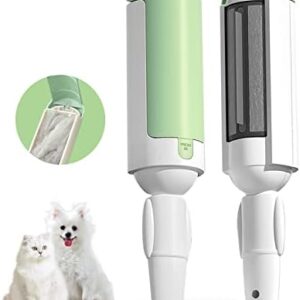
Have you noticed changes in your cat’s behavior after they have had surgery? It’s not uncommon for our feline friends to struggle with behavioral changes following a medical procedure. As pet parents, it’s important for us to understand how to help our cats cope with these changes and provide them with the support they need during this challenging time.
First and foremost, it’s important to remember that your cat may be feeling vulnerable and scared after surgery. They may be in pain or discomfort, and this can lead to changes in their behavior such as being more withdrawn, aggressive, or anxious. It’s crucial to provide them with a calm and comforting environment to help them feel safe and secure as they recover.
One common behavioral change that cats may exhibit post-surgery is aggression. Your usually mild-mannered cat may become more irritable or aggressive towards you or other pets in the household. This can be a natural response to feeling pain or discomfort, and it’s important not to take it personally. Instead, try to give your cat space and avoid any rough handling or interactions that could trigger their aggression.
Another common behavioral change is increased vocalization. Your cat may meow more frequently or loudly than usual as a way to communicate their discomfort or frustration. While it can be challenging to listen to, it’s important to be patient and understanding. Try to comfort your cat with gentle words and soothing tones to let them know that you are there for them.
Some cats may also become more withdrawn or hide away in a secluded spot after surgery. This behavior is often a sign that they are feeling anxious or in pain and may need some extra reassurance from you. Make sure to check on your cat regularly, offer them their favorite treats or toys, and spend some quiet quality time together to help them feel more at ease.
To help your cat cope with behavioral changes post-surgery, it’s important to create a calming and comfortable environment for them to recover in. Make sure they have a quiet and cozy spot to rest, away from any loud noises or disruptions. Provide them with plenty of fresh water, nutritious food, and a clean litter box to meet their basic needs.
It’s also a good idea to follow your veterinarian’s post-surgery care instructions carefully. This may include administering medication, changing bandages, or keeping your cat from engaging in certain activities while they heal. By following these guidelines, you can help ensure that your cat’s recovery goes smoothly and minimize any potential behavioral issues.
In some cases, behavioral changes post-surgery may persist or worsen over time. If you notice that your cat’s behavior is becoming increasingly concerning or problematic, it’s important to seek help from a professional. Your veterinarian can offer advice and support on how to address your cat’s specific needs and may recommend additional treatments or therapies to help them cope with their behavioral changes.
Remember, as pet parents, it’s our responsibility to provide our furry friends with the care and support they need to recover from surgery. By understanding and addressing their behavioral changes with patience and compassion, we can help our cats feel more comfortable and secure as they navigate this challenging time. With the right approach and support, your cat can overcome their post-surgery behavioral changes and get back to being their happy and healthy selves in no time.






